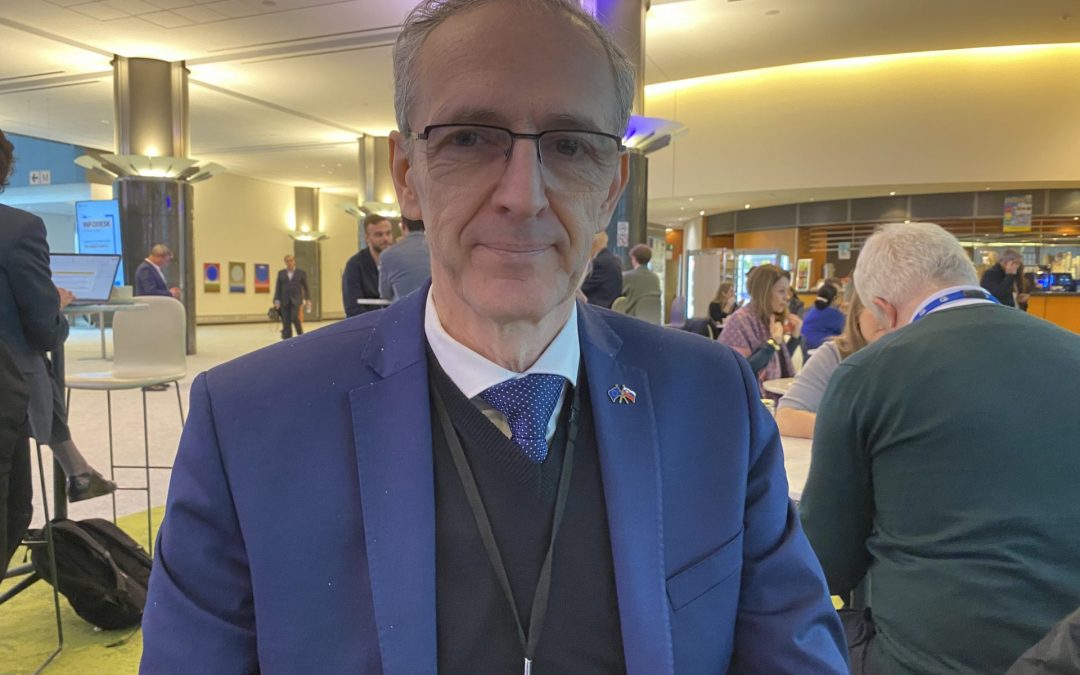Brussels – The European Parliament’s (EP) platform for small and medium-sized enterprises SME Europe continues to pressure EU institutions to improve conditions for entrepreneurs, who form the backbone of the European economy. Former Slovak MEP and honorary chairman of the SME Europe platform, Ivan Štefanec, said this in an interview for TASR on Thursday.
Štefanec attended a working meeting of the group responsible for protecting the interests of small and medium-sized entrepreneurs in Europe on Thursday. During his term in the European Parliament, he chaired the SME Europe platform for six years. He appreciates that during this period, lawmakers from the factions of social democrats, liberals, reform conservatives, and even from the Green group began participating in the work of the platform established by the European People’s Party (EPP), which involved around 60 deputies, because, according to him, everyone cared about ensuring that small and medium-sized enterprises in Europe thrive and contribute to improving competitiveness.
After his term as a deputy expired, the EPP retained the honorary title of chairman of SME Europe for him, and like other former MEPs from other EU member states, he participates in the working meetings of the platform. The chairmanship was taken over by Swedish MEP Jörgen Warborn.
“What we consider the most important is the reduction of bureaucracy. That is why we continue to pressure the European Commission and the European Parliament to reduce the administrative burden on entrepreneurs. We are negotiating with them, and I believe it will be successful,” he explained. He specified that the aim is not a “one-for-one” scheme, meaning to erase some older regulation by introducing a new one, but for each new legal norm to replace two or several older ones, which he believes is realistic.
SME Europe is also fighting for the completion of the EU’s single market, and Štefanec claims that the “greatest victory” of integration is not being sufficiently utilized by member states, and some countries are pushing national interests over common EU-wide ones.
“Especially in the area of services, we need to finish the single market; it concerns telecommunications, transport, and financial services. Completing the single market will benefit everyone, entrepreneurs and citizens alike,” he said.
Thirdly, according to him, SME Europe is focusing on the application of artificial intelligence in practice, because it is an area that changes everything. “Artificial intelligence will also be a determining factor, depending on how we manage it, whether we will be better off and whether it will help improve our competitiveness. I believe that the Union will succeed. We have created some regulatory framework, and now it is important to apply it in a way that does not hinder our competitiveness but, on the contrary, improves the EU’s position in the world,” Štefanec described the situation.
The former MEP reminded that SME Europe has representation in every EU member country through business associations, and in the European Commission, it is linked by the honorary member of this group, the Commissioner for Economy, Productivity, and Legislation Simplification, Valdis Dombrovskis, and in the European Economic and Social Committee (EESC), which acts at the European level for the benefit of employees and employers, the founder of SME Europe, Austrian politician Paul Rübig, works. (January 30)
“What we consider the most important is the reduction of bureaucracy. That is why we continue to pressure the European Commission and the European Parliament to reduce the administrative burden on entrepreneurs. We are negotiating with them, and I believe it will be successful.” Ivan Štefanec
 go to the original language article
go to the original language article
